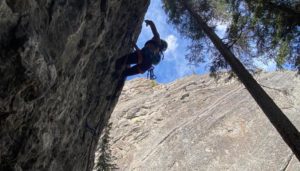Knut Rokne is Retiring after 15 Years of Dedicated Coaching
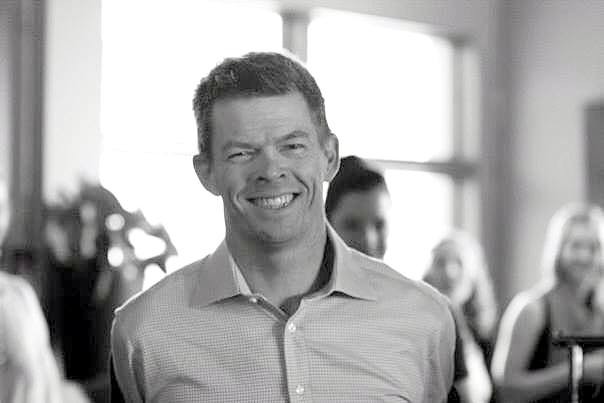
Knut Rokne has been coaching in Calgary for 15 years. As one of the most respected and experienced Canadian climbing coaches, Knut is currently the head coach of the competitive team at the Calgary Climbing Centre (CCC). He is set to retire from coaching at the end of March.

Knut has coached on national and international levels. He’s traveled around Canada for dozens of junior level competitions and internationally as part of the Canadian youth National coaching team. Gripped’s editor Brandon Pullan recently touched base with Knut to find out how the season was going.
Rokne started climbing in August 1988 after a friend encouraged him to try it out. “It was a rolling disaster, and I swore I would never climb again,” Knut said after his first trad lead. “It was silly, stupid and dangerous.” Nevertheless he stuck with it and as he’s said many times, “If it was easy, it would be called golf.”
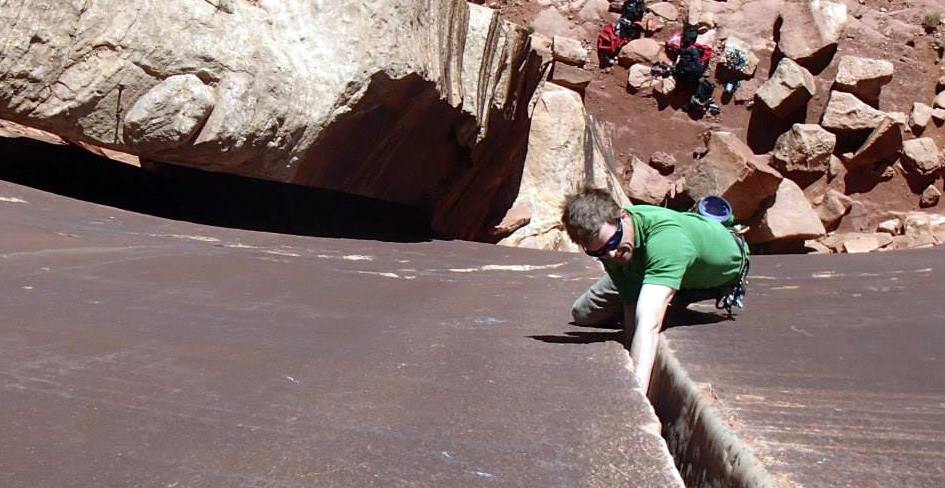
In 1991, Knut first competed at the King and Queen of the Concrete Contest held at the University of Calgary. He also competed at the PCA comps in Salt Lake City. “I used to measure my success in those comps with math: the number of hours driving divided by the number of holds touched,” said Knut. “The best I ever did was two hours of driving per each hold. Including start holds. But not including feet.”
It was Calgary Climbing Centre’s Walson Tai who gave Knut a chance to coach climbers. “I started because I loved climbing and because Walson Tai (owner of the CCC) gave me an opportunity to share this love for climbing with up and coming athletes. And the money. So much money.”
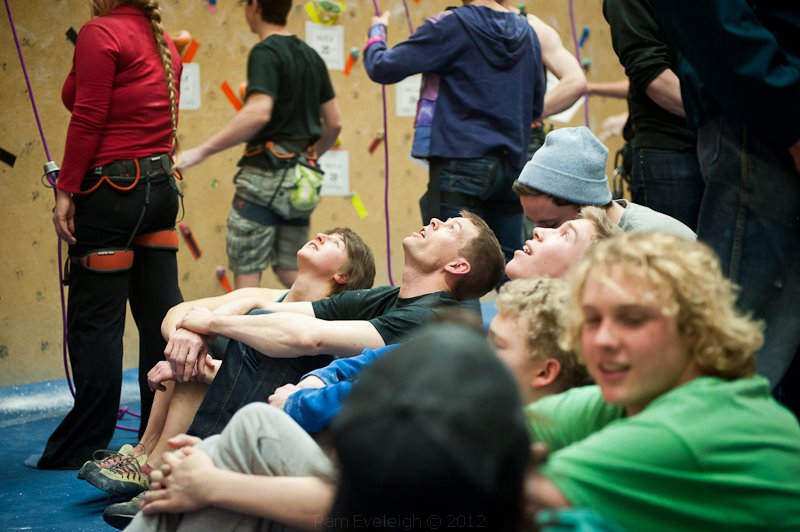
Gripped: How many athletes are on your team?
Knut: As the head coach of the CCC Teams, I, with my coaching partner Tony Berezowski, look after the 20 athletes on the competitive team. I also indirectly oversee the other coaches and teams. The CCC Program as a whole has more than 150 athletes of all levels, ages and skills.
G: How many other coaches help you?
K: The CCC has 17 coaches, which look after the seven Junior teams (20 athletes on each team) and the three Adult Teams (overseen by Bonar McCallum, OG of sending hard). The programs are overseen by the facility managers, Simon Villeneuve and Chris Adshade, who provide incredible support to the youth programs, and to me directly.
G: Has training changed much in the last decade?
K: Unsurprisingly, many principles remain constant: strength and movement. For strength, getting strong and fit is a simple process: identify areas you need to strengthen and apply progressive resistance, and maintain both mobility and structural balance through antagonist muscles. Athletes worldwide have developed ways to build the kind of power that climbers need, both through climbing and through other established sports like gymnastics. Climbing has adapted training skills and methodologies from many different sports. There’s not much new under the sun there.
The trickier area is that the movement is climbing specific, and that’s where I spend a lot of time with the athletes. I spend time trying to have them drive movement efficiently, conserve energy when possible, expend energy when required, commit through space, problem solve effectively, maintain composure and not get rattled. These are the harder-to-hit areas in coaching.
The CCC also has provided me with whatever terrain or training materials I asked for. When I mentioned that the teams needed to improve the training facility, so two years ago, Walson and Simon built a new 2,000-square-foot dedicated training space attached to the original gym space. This has opened up more training possibilities for my athletes.
G: What’s a highlight for you as a coach?
K: Two things. The first is the “aha” moment, when you see a concept click with an athlete. Where what you are trying to explain, and what they are hearing, line up, and the athlete “gets it,” and incorporates the new idea into their movement, training or way of being.
The second highlight is seeing an athlete I coached years ago, catching up, seeing how they are doing. I have met some utterly remarkable people through coaching. Made some life-long friends. Too many good people to name individually. Athletes and people of the highest calibre. I’m lucky to have met them. They are the best part of coaching. There are a couple who are very very close to me after many years, including my current training partner, who is a gift. A real gift.
G: Do you travel with the team much?
K: For the past 15 years, I’ve been at every Canadian Youth Nationals, and three Youth World Championships. I’ve been to hundreds of competitions and worn out a Volvo and a Subaru in the process.
As our teams have grown, the CCC and Walson, who are dedicated to supporting the performance of our athletes, sends a minimum of two coaches to any competition where our athletes are in participation, and the support to the athletes shows.
This is also made possible only because I have a large, dedicated team of coaches, each of whom has supported the team at numerous competitions.
G: Calgary has a strong team, what advice do you have for new coaches out there?
K: 1) Don’t do this for any reason other than you absolutely love it.
2) Being a coach isn’t about transmitting information to an audience. It’s about forming a partnership with someone who wants to improve, and who you want to help improve. You have to work together to make it work.
3) Care about your athletes. You can’t half-ass this, and you can’t fake this. Truly care about how their head is, their heart is and their athletic performance is. If you care for them, they will trust you, and if they trust you, that forms the basis of the partnership.
4) It doesn’t matter if you’re a new coach or an old coach: Don’t take yourself too seriously. None of us are so good that we can’t learn from everyone around us. There are many days were I learned more from the athlete than they learned from me.
G: What is training like?
K: Training is seven hours a week directly and then additional work outside team.
G: Do injuries play more of a role for younger or older climbers?
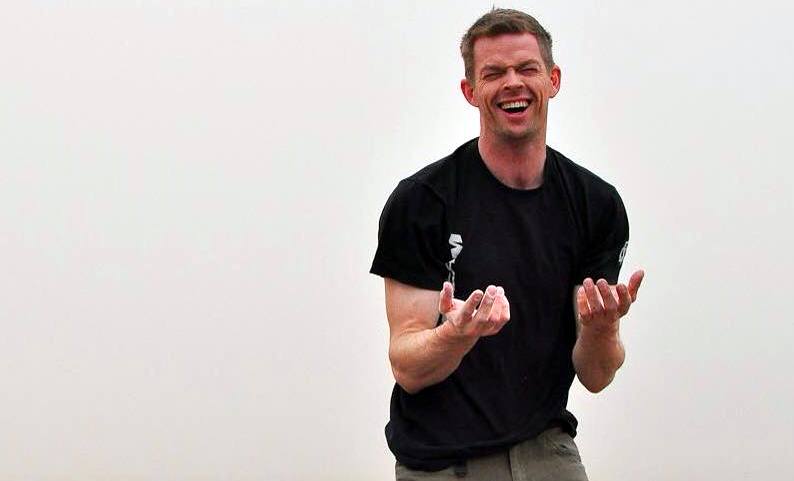
K: Every sport will have injuries: if you push your body hard, sometimes someone playing the sport will get hurt. It’s inevitable. But this cannot mean you are lax or indifferent about it. Injuries are the one thing as a coach you have to monitor more than anything. A single injury can undo years of training.
I would rather tell an athlete with a minor injury to sit down and rest for six weeks, than have the minor injury become something which will take them out of climbing for a year or two. Be attentive, err on the side of caution every time, remember that the athletes look to you for sound advice, and most of all, help the athletes listen to their own body.
G: How long will you coach for?
K: Easy, two more weeks. I have resigned from coaching. My last day is the end of March. Our new head coach will be Jelisa Dunbar who is returning from competing, training and setting in the Europe, to run the program full time. She is fabulous, knowledgeable, motivated and I’m excited to see where she takes the teams in the future. Jelisa is a veteran of many youth and adult world cups and world championships.
G: Big plans this summer?
K: Becoming a father. A new chapter. Instead of worrying about other people’s kids, now I get to worry about my own. I’ll continue to watch the CCC Teams from the sidelines as they continue to grow, improve and inspire.
G: Anything you’d like to add about coaching in Calgary?
K: Nothing happens here without the community Walson Tai built. Competitive climbing in Calgary is purely as result of Walson, and of the care and management from Simon Villeneuve and Chris Adshade. Without those three people, nothing I did would have even started. The teams are a product of their vision and their support.
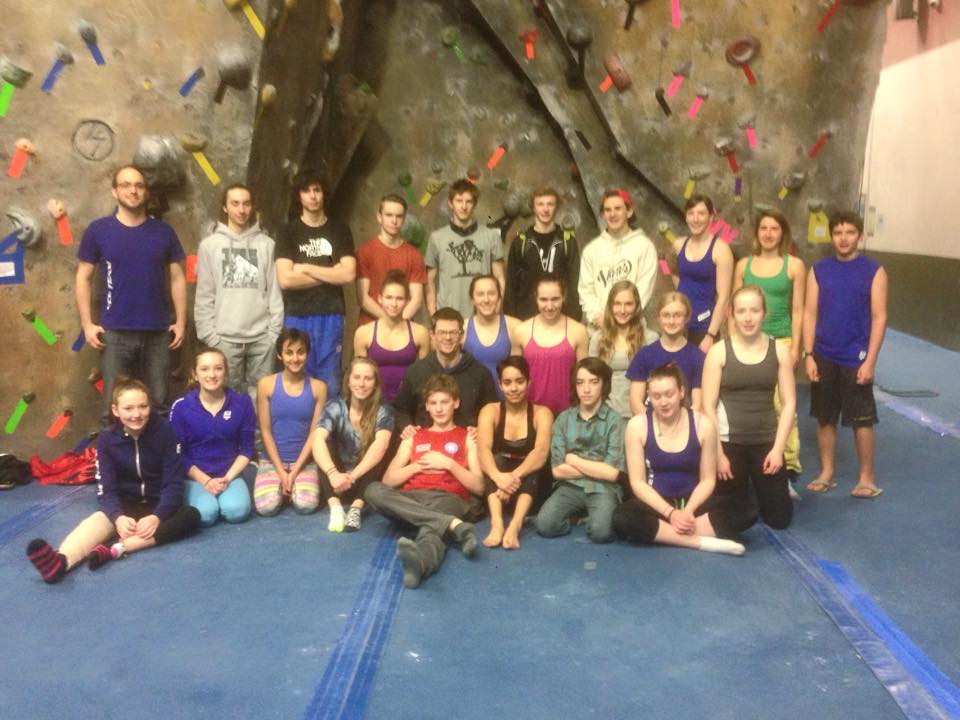
Knut’s commitment to climbing is evident in everything he does, from climbing competitions and running laps on 5.13 sport and 5.12 trad, to opening up young climbers’ eyes to the potential and beauty of rock climbing.
As he starts a new chapter in his life and leaves behind a legacy of climbing and coaching achievements, he will surely be missed at the competitions and training sessions. Jelisa Dunbar knows how much work she’ll be taking on in Knut’s place, but said she is honoured and excited for the opportunity.
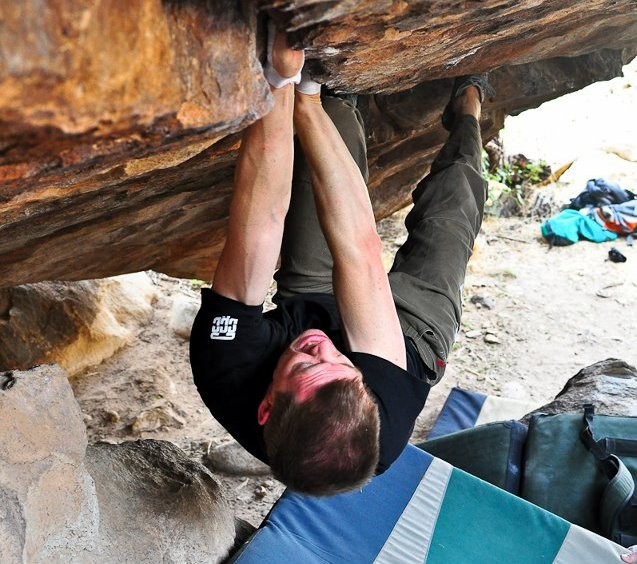
–Written by Gripped editor Brandon Pullan. Everyone at Gripped wishes Knut best of luck with his future plans and a big thanks for the years of effort.
